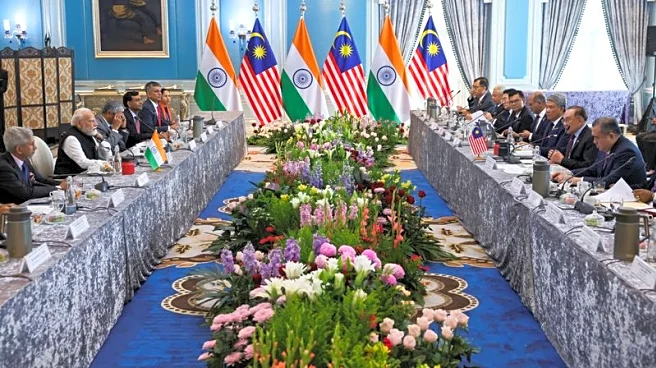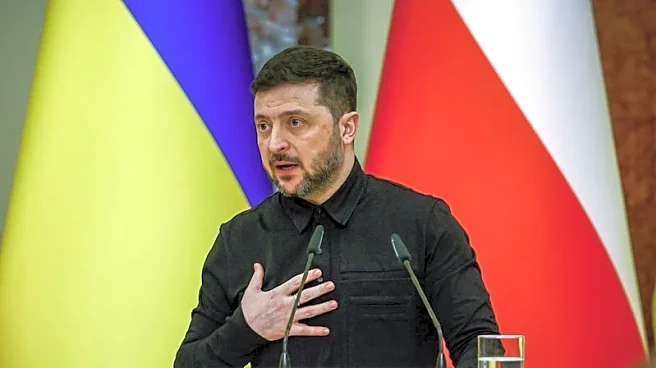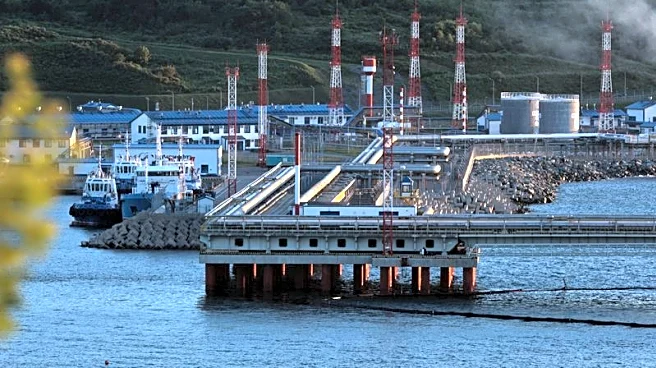What is the story about?
What's Happening?
Former U.S. Ambassador to NATO, Kay Bailey Hutchison, has expressed concerns over the increasing impatience among global leaders with Russian President Vladimir Putin. Hutchison highlighted the leverage that President Trump and European allies possess to potentially bring Putin to the negotiating table. This sentiment reflects the ongoing geopolitical tensions and the challenges faced by Western nations in dealing with Russia's foreign policy actions.
Why It's Important?
The growing frustration with Putin underscores the strained relations between Russia and Western countries, which have significant implications for international diplomacy and security. The ability of President Trump and European allies to influence Putin's decisions could impact global stability and the resolution of conflicts involving Russia. This situation affects U.S. foreign policy and its strategic alliances, potentially altering the balance of power in international relations.
What's Next?
The next steps may involve diplomatic efforts by the U.S. and European nations to engage Russia in dialogue, aiming to de-escalate tensions and address mutual concerns. The response from Russia and its willingness to negotiate will be crucial in determining the future of these international relations. Stakeholders will be closely monitoring any developments that could lead to a shift in the current geopolitical landscape.
Beyond the Headlines
The situation raises ethical and strategic questions about the use of diplomatic leverage and the potential consequences of failing to engage Russia effectively. Long-term implications could include shifts in alliances and the need for new strategies in dealing with global powers that challenge Western interests.
















